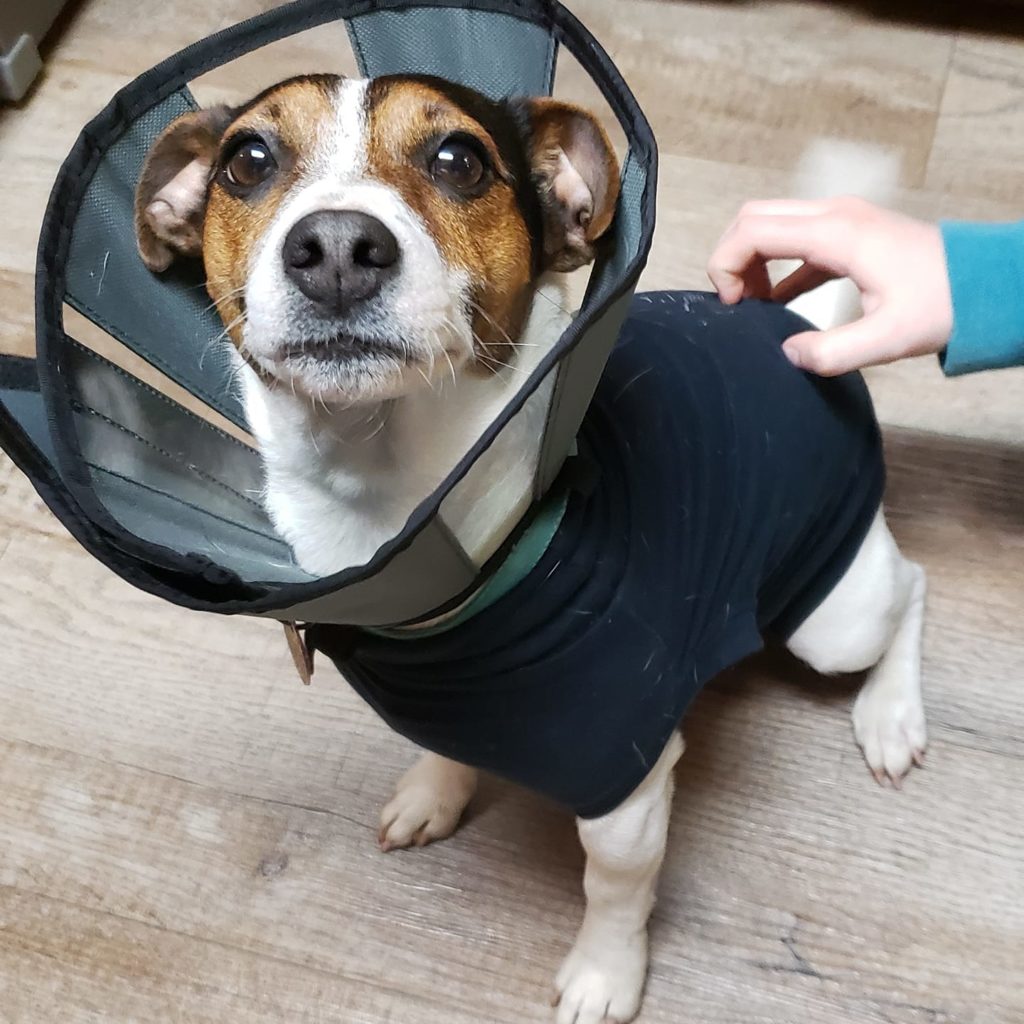Table of Contents
I’ll be the first to admit that I’m extremely skeptical about alternative medicine. There’s a lot of bad information out there, and a lot of people trying to sell products that, at best do nothing, and at worst are downright dangerous.
*This post may contain affiliate links. As an Amazon Associate we earn from qualifying purchases.
But there are also alternative treatments that have shown results in peer-reviewed, reproducible studies published in scholarly and medical publications. These include acupuncture and Yoga (which you can, by the way, do with your dog). When treatments prove to be effective, they eventually go mainstream. And this is the case with acupuncture.

Today, veterinarians are also beginning to accept the effectiveness of acupuncture in treating certain pet ailments. In some places, you can even find qualified veterinarians who have also earned their credentials as an acupuncturist.
Is acupuncture right for your dog? That’s for you and your veterinarian to decide. We’re not veterinary professionals here at Best JRT Lovers, and we’re certainly not dispensing medical advice. But if you think acupuncture could be right for your JRT, then you should discuss it with your vet.
How Does Acupuncture Work?

Acupuncture involves inserting extremely thin needles beneath the skin. It’s not typically painful as the needles are thin and they aren’t inserted deeply.
How can that help pain and illness? There are two main explanations.
The alternative medicine explanation
Proponents of alternative medicine may talk about qi, that is, the energy or life force that many believe flows through all living things. According to traditional Chinese medicine, many illnesses stem from a disruption in the qi flow. Acupuncture, many believe, stimulates points beneath the skin to correct the disruption and get the qi flowing smoothly again.
The traditional medicine explanation
According to veterinarian Patrick Mahaney, acupuncture points are places where nerve bundles and blood vessels come together. Gently inserting acupuncture needles into these points stimulates the body to produce its natural pain-relieving and anti-inflammatory substances. It also increases blood flow to tissues, as well as oxygenation.
Does it work?

There are numerous published clinical trials that have shown that acupuncture is effective for a variety of different human medical conditions. But what about the placebo effect — that is, the idea that thinking a treatment is effective will make you feel better, regardless of that treatment’s actual effectiveness?
I think everyone would agree that animals don’t think analytically about their own medical conditions. Nor do they think about their treatments. They just want to feel better. So when
Which Conditions Can Acupuncture Help With?

In animals, as well as in humans, acupuncture is particularly effective in dealing with pain and pain-related conditions. A 2017 review of veterinary clinical trials found that when it came to veterinary medicine, acupuncture was helpful in dealing with:
- arthritis
- hip dysplasia
- intervertebral disc disease
- post-surgical pain
- depression
- anxiety
- gastrointestinal problems
- some respiratory problems
- and several more
It’s not a miracle cure, however, and it’s not appropriate for every ailment. No single treatment is. But when it comes to pain and inflammation, it’s definitely worth consideration.
How Do You Find a Practitioner?
No, you shouldn’t just take your pet to your own acupuncturist. And you shouldn’t just pick one at random. According to Dr. Mahaney, it’s important to pick a practitioner who is both a licensed veterinarian and someone who has been trained and credentialed in Traditional Chinese Medicine. As any veterinarian can tell you, different animals have different physical systems and different medical needs, and you need someone who understands dogs’ needs specifically.

The International Veterinary Acupuncture Society (IVAS) is an umbrella organization that includes different professional veterinary acupuncture organizations around the world. These organizations, such as the American Academy of Veterinary Acupuncture and the German Veterinary Acupuncture Society maintain memberships of qualified veterinarians trained in acupuncture. Some of these organizations offer certification and continuing education as well.
Most importantly, you can search these affiliate organizations to find a practitioner near you.
Is Acupuncture the Right Treatment for Your JRT?

It could be. But that depends on a lot of things, including your dog’s specific condition and general health needs. But if you’re interested in learning more, it’s worth a chat with your veterinarian.
Featured Image: CC0 via Pxhere

